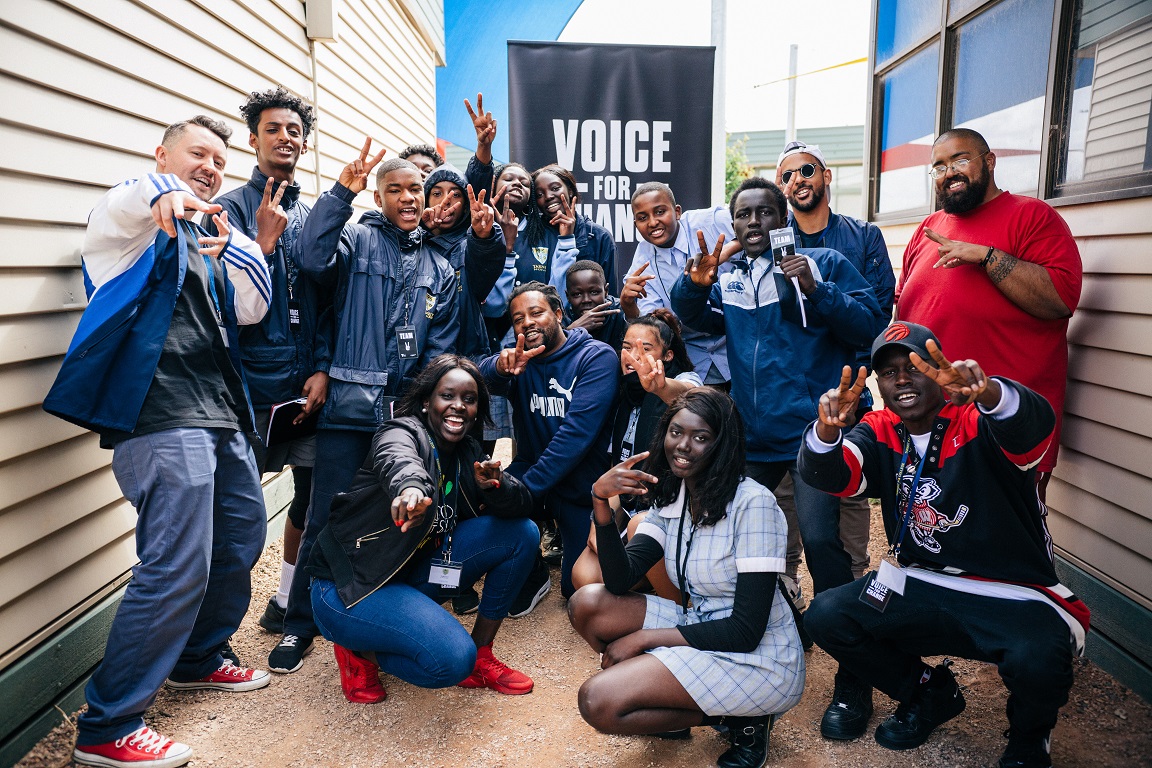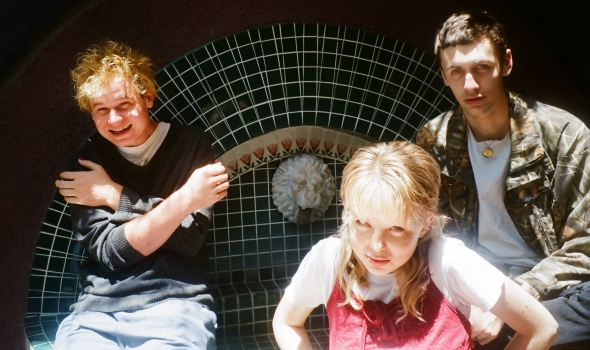Throughout history, music has been a vehicle for progress. Entire genres, such as hip hop and punk, have been built using creative platforms to give a voice to the people.
It’s this ethos which is at the heart of the Voice For Change initiative, which aims to inspire young people to chase their aspirations and find their voices. Now in its second season, Voice For Change will once again see musicians and sports stars from diverse backgrounds banding together for a documentary series and mentorship programs encouraging young people to chase their dreams and stand up for their beliefs.
Through the Voice For Change workshops, Australian hip hop artists such as Melbourne-based rapper Mantra, will be taking to schools around Australia to not only equip young people with skills in making music, but to challenge them to find and pursue their passions.
“I’ve seen the impact music and art can have when it connects with people on an issue they relate to,” says Mantra.
“It can inspire people and it can change the world. If it wasn’t for a public response to political and social injustices, hip hop would not exist.”
It’s the combined power of these messages and his music that drives Mantra’s art. The rapper maintains the importance of utilising his platform to challenge ideas and hopefully spark change – or at least a change of perspective for his listeners.
“I could never make music without using it to address those issues that are important to me,” he says.
“If you have that power to speak out, to inspire and to change things, that’s a very privileged place to be and shouldn’t be taken for granted.”
Over 15 years into his career, Mantra’s experience as a songwriter often exceeds the lifetime of his mentees, though his students continue to surprise him with their insights and perspectives on the world around them.
“One thing that really stood out to me was the maturity of the writing,” says Mantra.
“The young people involved seemed to really appreciate the power of music and the power of lyrics to speak on important issues. There were hardly any songs that didn’t address some deep, important concept in a unique and powerful way.”
Aside from the obvious benefits of nurturing creativity in his students, Mantra sees his work as more than just providing young people with an artistic outlet.
“In my work with young people, my hope is to empower them to be themselves and to see the worth in who they are. Programs like Voice For Change support kids who aren’t necessarily connecting with traditional forms of education, who are vulnerable or at risk, by giving them a platform they relate to, which allows them to share their ideas and perspectives,” he says.
“A lot of these young people, particularly those from marginalised, migrant backgrounds are being misrepresented by the media, so it is important they are given the tools they need to represent themselves. Ideally, I would love to see programs like this become an integral part of our education system.”
The level of political engagement we are seeing from the next generation, such as the recent strike spearheaded by thousands of high schoolers to protest the Australian Government’s stance on climate change, reinforce the importance of programs such as Voice For Change and mark a new era in the fight for social justice.
“Young people will always be one of the most important voices in any political conversation,” says Mantra.
“The world often overlooks the opinions of young people, dismissing them as naive or inexperienced. But I think young people often have opinions that are far less clouded than older generations. They haven’t been influenced by as many external systemic or societal factors, so their opinions are based on what feels right and fair. That’s an important voice to listen to.”







